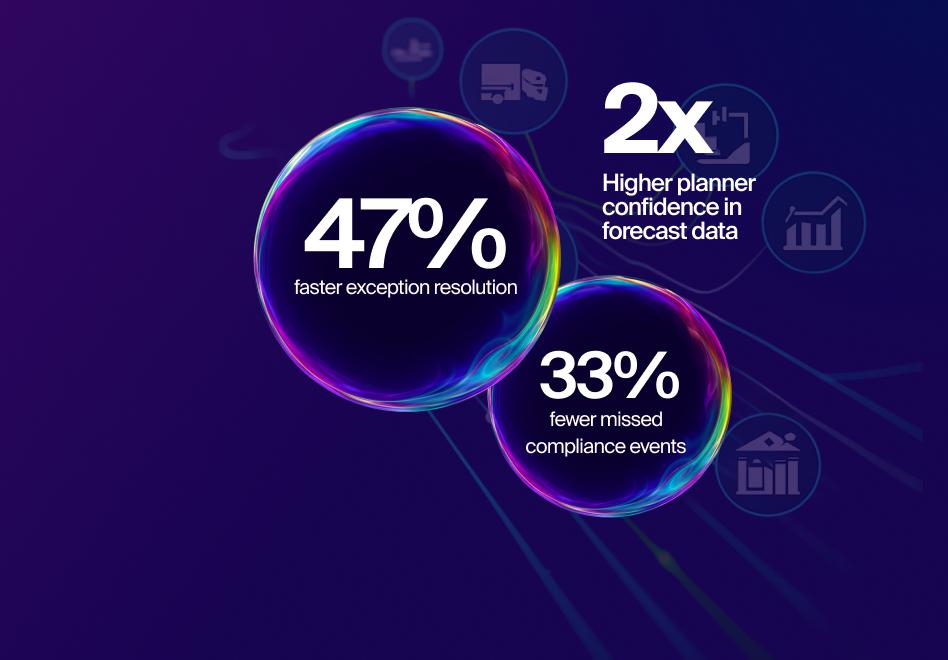At a Glance
- Industry 4.0 has brought transformational changes in the chemical industry’s operations and the chemical companies understand the power of going digital to streamline their operation.
- As with any new process change, operational management changes include upgrading skills, fortifying the IT infrastructure and resource allocation.
- Today, chemical companies are facing specific challenges in streamlining their operations to enhance productivity. Decision-makers must go to the root of these problems to address them strategically.
- Industry experts believe that strengthening the IT infrastructure is the first and most crucial step towards overcoming operational management challenges in the chemical industry.
The chemical industry is witnessing challenges related to transformation in business functions and streamlining operations. After all, in a hyper-connected, fast-paced world, trimming unnecessary processes and optimizing the resources must enhance operational output. A chemical company functions with numerous stakeholders to drive operations who require visibility and transparency. Chemical companies need to migrate from legacy platforms to newer, highly advanced software tools to boost productivity in a plant. The change calls for strategic reshuffling, process reengineering, and an operational blueprint for running business in a cost-effective manner. Business transformation brings specific pressing issues that chemical companies need to address while maintaining a steady state in operations.
There is a potential for a three- to five-percentage-point improvement in return on sales from employing digital in production operations.
1.Legacy Platforms: Advancements in operations and trimming the processes require the adoption of newer technologies such as automation, data analytics, and machine learning. These technological overhauls require moving from legacy platforms to robust, high-tech tools and software. Chemical companies often find themselves in a struggle to make this move successfully, without disrupting their ongoing operations. There are also cost-related concerns that the top executives need to take into consideration.
2.Shortage of Skilled Personnel: Chemical companies operate with subject matter experts at both shop floor and top floor. These people are the ones who are well-versed in their field of sciences and are accustomed to following a particular operational blueprint. However, to streamline operations, there is a need for technologically adept personnel who can take up the responsibility of both chemical process management through newer tools and the nitty-gritty of chemical manufacturing processes (and related tasks). The chemical industry is currently facing a crunch of skilled personnel, affecting the digitization process for effective streamlining.
Figure 1:Why Chemical Companies Need to Opt for Streamlining of Operations

3.Inventory Management: Chemical companies often rely on spreadsheets and software built in-house to manage their inventories. Inventory inefficiencies are due to manual intervention, working in silos and not keeping a real-time track of inventory. However, to combat inventory issues, moving the chemical inventory management process to an automated platform often causes chaos and mishandling due to poor inventory data from legacy systems. The post-transformation hurdles make chemical companies wary and thus create a temporary glitch in the simplification of operations.
4.End-to-end Process Changes: The production and after-market cycle for any chemical product or the raw material is both intricate and one with many side-branches. To potently streamline the entire operational cycle, the chemical companies will need to change all their processes. The business transformation would include resource management, commodity acquisition, billing cycles, pricing strategies, report generation, and many essential activities. These changes can be daunting, time-consuming and expensive, making it a massive challenge for chemical companies in their path towards streamlined operations.
How Can Chemical Companies Effectively Address the Challenges in Streamlining Operations?
If you are the decision-maker in a chemical company who is looking for cost-effective solutions for operational streamlining, you would most probably look for:
Figure 2: Primary Intents of Operational Streamlining

Chemical Companies can achieve these objectives with a single-point tool such as the Microsoft Dynamics 365 ERP and SCM (Enterprise Resource Planning and Supply Chain Management). You can effectively incorporate process automation, process realignment, optimized resource allocation, analytical report generation, billing cycle management, procurement documentation, inventory governance and supply chain optimization all under one roof.
Microsoft Applications Platform, and surrounding ecosystem, comprises a suite of business applications to support all types of businesses across a range of industries and lifecycles. Today, we’re specifically talking about Finance and Operations. Still, it’s essential to know that this is just one component in the ecosystem that is all designed and built to work together.
Figure 3:Microsoft Business Application Ecosystem

The Microsoft ecosystem helps chemical companies be agile to stay ahead in the game, manage operations to maximize production, minimize wastage of efforts, investments and time. Chemical companies can quickly up-skill their current employee base to get them acquainted with advanced and easy to learn tools to streamline operations.
Businesses can achieve productivity through strategic planning from top executives and effective implementation of a fortified IT infrastructure. The Microsoft ecosystem makes the implementation simpler due to native integrations and interoperability across these tools.
Key Takeaways
- To address the chemical industry challenges in managing and streamlining the operations in chemical companies, the top executives will need to look at the advancements of the digital world and align their processes with the current headways.
- Timely intervention from a strategy and implementation point of view is essential to overcome the issues about chemical companies’ operations.
- Chemical companies can significantly benefit from comprehensive ERP and SCM tools that can facilitate efficacious streamlining of operations from the shop floor to the top floor and even in inventories and the after-market.
Reach out to us for your company’s Digital transformation








